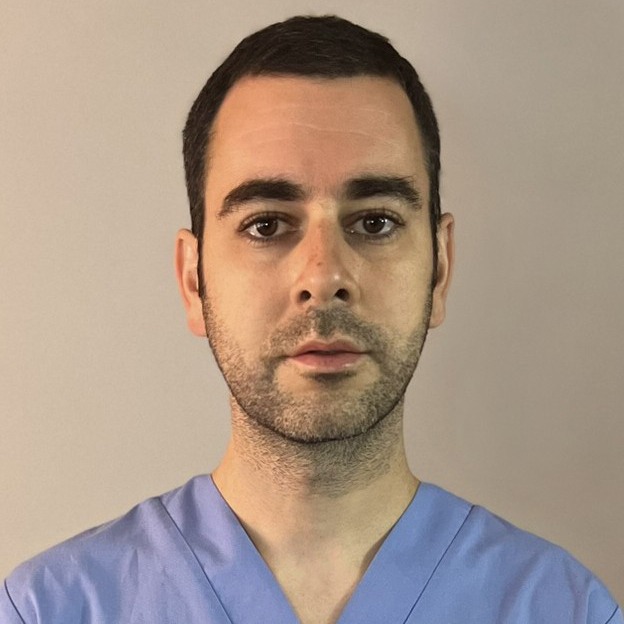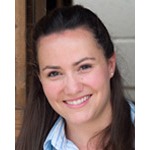Abdominal POCUS in Equine Practice: Decision Making & the Role of Telemedicine
Species
Equine
Contact Hours
3 Hours - RACE Approval Pending
Language
English
Discipline
Diagnostic Imaging
Emergency & Critical Care
Internal Medicine – Endocrinology, Haematology, Infectious Diseases, Parasitology & Oncology
Veterinary Partner
Equine


Time: London 6PM / Paris 7PM / New York 1PM / Sydney 4:00AM (+1)
Panelists:
Harry Carslake MA, VetMB, PhD, DACVIM, DECEIM, SFHEA, MRCVS - University of Liverpool, UK
Gabriel Manso-Diaz DVM, MSc., PhD, DECVDI, MRCVS - Universidad Complutense De Madrid, Spain
Cris Navas LV, PhD, DACVIM - PennVet, New Bolton Center, USA
Moderator:
Victoria South Vet MB, MA, CertAVP(EM), DECEIM, MRCVS - Consultant, UK
PANEL DISCUSSION DESCRIPTION
Point of care ultrasound (POCUS) is advanced diagnostic ultrasound that is performed and interpreted by the attending clinician as a ‘stable-side’ test. POCUS is a rapid diagnostic tool that is especially helpful in emergency equine practice. Join us for an in-depth session exploring the range of uses of POCUS in equine practice.
- How does POCUS make a difference to our certainty of a diagnosis in colic?
- How do clinicians work through their protocols?
- In what contexts does POCUS make a difference?
- What can we measure and when is that helpful?
Hear how our international and multidisciplinary panel of experts use ultrasound to navigate challenges in diagnosing abdominal disease; tricks to abdominocentesis, interpreting gas, understanding gastric dimensions, and confirming intestinal perforation.
Following graduation from Cambridge University in 2000, Harry spent 2 years in mixed practice and then 3 years at Liphook equine Hospital, where he developed an interest in internal medicine. He then worked for 6 years at Massey University, New Zealand, first as resident and then as lecturer in equine internal medicine. He was also team vet for the New Zealand 3-day eventing development squad. On returning to the UK in 2011 Harry worked for 18 months at Fellowes Farm equine clinic, before being appointed as Lecturer in equine medicine at Leahurst in 2013.
He became a Diplomat of the American college of veterinary internal medicine in 2010, and an RCVS recognised specialist in equine medicine in 2014. He is interested in all areas of equine internal medicine, but has particular interests in endocrinology, gastroenterology and imaging. He was awarded a PhD in equine endocrinology in 2022.
Dr. Manso-Diaz graduated in Veterinary Medicine, obtaining the Extraordinary National Award, Master in Research in Veterinary Sciences and Doctor in Veterinary Medicine with European mention, obtaining the Extraordinary Doctorate Award. He completed an official European residency in Large Animal Diagnostic Imaging at the Royal Veterinary College , University of London, obtaining a Diploma from the European College of Veterinary Diagnostic Imaging (ECVDI). In addition, he has completed multiple specialized training stays in prestigious centers in the United States and the United Kingdom. He is the author of various indexed scientific articles, books and conference communications in the field of veterinary imaging diagnosis, highlighting the area of equine cranial, spinal and abdominal imaging. He is a regular speaker at numerous courses, workshops and conferences in this specialty at an international level.
Equine internist and ultrasound/cardiology expert Dr. Cris Navas joined Penn Vet’s faculty last year, but his history with the School goes further back. From 2008 to 2012, Navas was a cardiology and ultrasound fellow and then lecturer at New Bolton Center. He left for a few years to teach elsewhere in the U.S. and Switzerland before returning to the Kennett Square area in 2019.
Navas’s main interest is exercise-related deaths and cardiac disease in athletes. “It’s an issue that needs to be fixed and has gained public attention recently,” he said. “We’re learning more all the time as new technologies increase our capacity to collect data, but we need better tools and more knowledge to interpret the data.” He is currently testing wireless heart rate monitor wearables that are streamlined for equine wearers, friendly for users, and better able to collect data from a larger population of horses than traditional wired patches. Dr. Cristobal Navas holds a surcingle fixed with a W2ND wireless heart monitor. Dr. Cristobal Navas holds a surcingle fixed with a W2ND wireless heart monitor.
At the same time, he’s also using digital technology, such as handheld ultrasound devices, to create an equine telehealth program. “Remote access and telecommunication tools will allow us to access many more people and advise in real time on cases around the world,” said Navas.
More InfoVictoria graduated from Cambridge University in 2006, and worked as an ambulatory equine vet for several years before becoming a resident in Equine Internal Medicine, in March 2009. She became a European and RCVS recognised specialist in Equine Internal Medicine in 2013, and was part of the medicine referral team at Liphook Equine Hospital for more than a decade. More recently, she works as a consultant, and is a part-time lecturer and clinical lead at the University of Cambridge School of Veterinary Medicine. She is working towards an MSc in Evidence Based Healthcare at the University of Oxford. Victoria also works for the FEI (eventing and endurance) and is a Level 1 OV and PTV. Victoria is passionate about the dissemination of evidence into practice, and promoting innovation in practice. Her specific areas of interest include endocrinopathies, antimicrobial stewardship, ophthalmology, diagnostic imaging, and clinical pathology.
More InfoQualified Vet
Online Panel Discussion
USD 85.00
Intern/Resident/PhD (Requires proof of status)
Online Panel Discussion
USD 65.00
Vet Nurse/Vet Tech (Requires proof of status)
Online Panel Discussion
USD 65.00
Veterinary Student (Requires proof of status)
Online Panel Discussion
USD 35.00
Non-veterinary Attendee
Online Panel Discussion
USD 65.00
If the options you are looking for are unavailable, please contact us.
No tax will be added unless you are a UK taxpayer
Choose currency at checkout

 Tue, 08 October, 2024
Tue, 08 October, 2024
 06:00 pm - 09:00 pm
(Your Local Time Zone)
06:00 pm - 09:00 pm
(Your Local Time Zone)

















